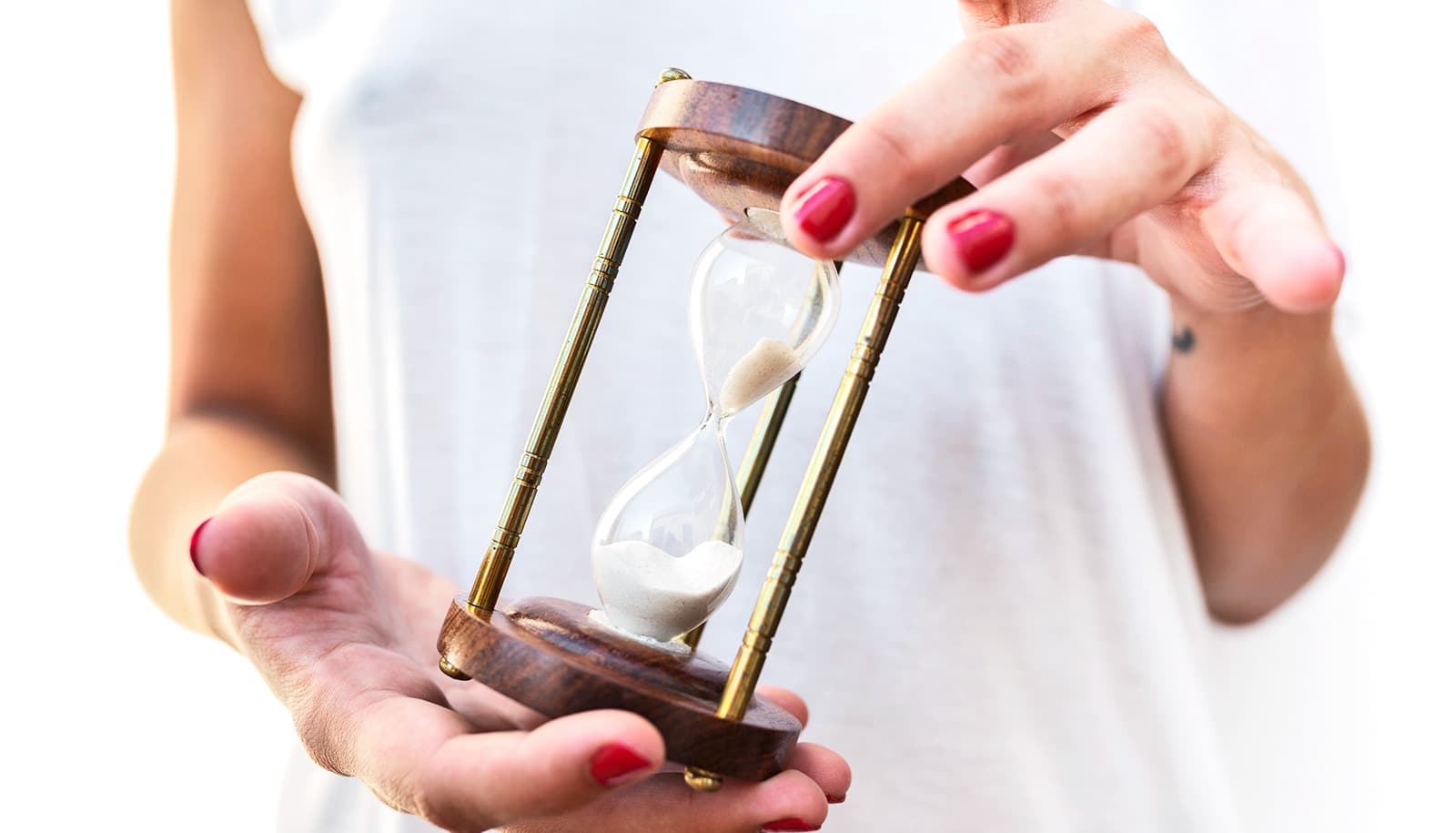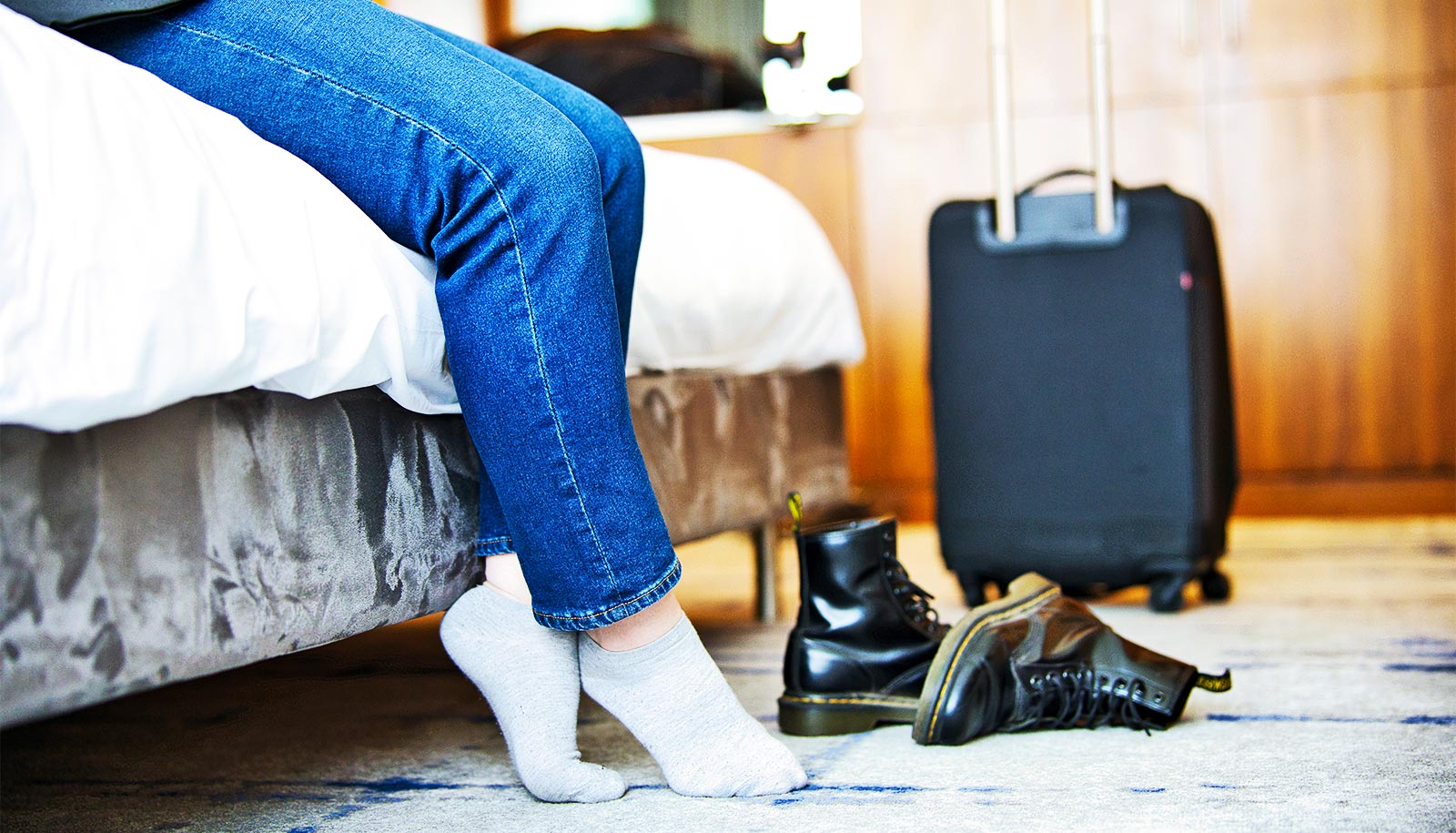An expert has answers for you about keeping your circadian rhythms, which have been implicated in diseases from dementia to cancer, in tip-top shape.
In this season of short days and long winter nights, it’s easy to feel out of sorts.
Those who suffer from seasonal affective disorder, a form of depression that’s closely linked to the circadian rhythms that govern our sleep cycles, know this all too well.
But those same rhythms, which are themselves governed by biological clocks, can affect much more than mood and sleep.
Here, Sofia Axelrod, a research associate in the Laboratory of Genetics headed by Nobel laureate Michael D. Young at Rockefeller University, digs into how our circadian system works, its far-reaching influence, and how to keep it running smoothly:
What are biological clocks, and how do they establish our circadian rhythms?
It’s really a genetic program: Specialized photoreceptors in the backs of our eyes evolved to respond to a certain spectrum of daylight, and that signal gets transmitted to clock genes located in our brains, which begin making proteins on a 24-hour cycle.
As it turns out, almost every cell in our body has a set of clock genes, and they are all synchronized to the master clock in the brain. So you have this orchestra of cellular clocks that get set by light every morning. The impact is enormous—we estimate that 50 to 80% of all genes in all cells are under circadian control, which means that there are 24-hour oscillations in every aspect of our physiology that affect health and disease.
When these clocks are disrupted, we don’t just develop sleep disorders; we also get heart attacks, stroke, obesity, autoimmune disorders, increased infections, dementia, and even cancer. Just how broad the health implications are have surprised me.
For instance, we recently demonstrated that sleep, which is in part regulated by circadian rhythms, controls the permeability of the blood-brain barrier, which prevents all kinds of substances from entering the brain—including therapeutic drugs. This may impact not just health conditions, but also our ability to treat them.
You mention infections—people tend to get sicker when it’s colder out, and we often blame the fact that we’re all spending more time indoors together. How do changes in light exposure during the winter months actually contribute?
The immune system is a good example of how our body uses circadian rhythms to create order among all our various molecular functions. Many of the millions of biochemical processes happening inside your body in the course of a day cannot or should not happen at the same time, so your circadian rhythms tell your cells and organs what order to do things in. For instance, at certain points in our daily rhythm we don’t release T cells into the blood. One reason we’re more susceptible to infections when we get less light is because, if your rhythm is off, you might just not have enough immune cells ready to fight.
But this isn’t only a seasonal issue. We spend so much time indoors all year round that most of the light we’re getting is weak artificial light. Modern civilization obviously has a lot of benefits, but one of the downsides is that many people are not getting the level of sunlight required to properly stimulate this process. Thanks to bright light therapy, however, that is a solvable problem.
Does our night-time use of artificial lighting and devices with bright screens further complicate the circadian situation?
Not in and of itself. It’s really the difference in light exposure between bright days and dark nights that tells the body what’s going on. So if you get a lot of bright light in the morning, it doesn’t matter what happens at night with indoor lighting and screens; the daytime signal is so overwhelming that the body just ignores everything else. But a lot of us don’t get our morning dose of sunlight, and at night we get a lot of light from screens, so our bodies are in a state of circadian confusion.
What can we do to keep our rhythms running like clockwork?
When you get up in the morning, you want a lot of light. And if you can’t get enough sunlight, either because it’s overcast or you work inside without windows, get a little light box: have it at home, have it on your desk, and—this is important—use it for at least half an hour. These things really work!
When it gets dark really early, the body can also become confused in the afternoon and evening and think, “Oh, maybe it’s time to go to sleep.” When that happens, you can again use bright light, including the light from screens, to keep you up in the evening until you actually want to go to sleep. You can do that until about half an hour before going to bed.
At that point, if you want to read or avoid stumbling around in the bedroom, a red light lamp can help. Red light doesn’t activate your circadian clock, so your body can shift into being sleepy and relaxed.
Controlling your light environment is an easy way to help your body do what it’s supposed to do.
Any other tips for avoiding circadian chaos?
Shifting your bedtime and wake-up times around all the time will lower your body’s ability to make you tired at night, because sleep hormones are circadian. Maintaining circadian rhythms means doing everything, especially related to sleep, at the same time every day: getting up at the exact same time, going to bed at the exact same time. Get your morning light dose at the same time, eat at the same times.
That’s tricky; on a holiday break or over the weekend, we often want to sleep in, and some people really do need to make up for lost sleep. But from a circadian perspective, keep things as tight as possible.
Source: Rockefeller University



